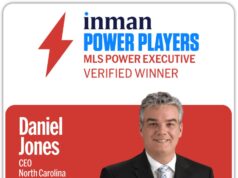Tips to Getting a Mortgage for an Investment Property
You’ve probably heard that owning a rental property is a great way to invest your money and enjoy a steady stream of income. However, getting a mortgage for an investment property can be challenging, especially if you’re not able to put a lot of money down at the time of purchase. By consulting a mortgage broker Guelph homeowners can get advice on how to get a mortgage for a non-owner occupied residence. The tips given here will also help you learn what to expect from this process.
Choose the Right Property
Not just any property is a good investment, especially if you’re taking out a mortgage on it. You want to be sure that the property you buy will result in a profit after you’ve paid the mortgage payments, insurance, maintenance expenses, home improvements, and emergency situations. Determining a property’s capitalization rate, or cap rate, is critical to knowing whether a property is a good investment or not. To find the cap rate of a property, divide the annual income you will receive after all expenses by the purchase price.
Be Prepared to Have a Higher Interest Rate
Since people are more likely to walk away and default on a second property loan than they are from their primary residence, lenders usually hike up the interest rate on investment property loans. Typically, you can expect to pay about 3/4% to 1% more in interest than on a primary property mortgage. The rates will still be relatively low compared to other types of loans, but you should prepare yourself for a higher rate when calculating your payments.
Save for a Higher Down Payment
Mortgage insurance does not cover rental properties, so you won’t be able to qualify for a loan that requires mortgage insurance, like an FHA loan for an investment house. You may be able to get a conventional loan, but you’ll have to come up with at least 20% down so that they don’t have to charge a mortgage insurance rate along with your monthly payment. The more you can put down, the better the odds are that a lender will take a chance on you. If you absolutely cannot afford 20% down, you may still be able to get a mortgage through a private mortgage lender, which will have more flexibility in its requirements.
Shop Around For the Right Lender
No two lenders will have the exact same requirements for an investment property loan. Some may charge higher interest rates to mitigate their risk while others may require a higher down payment. Still others, especially if they’re private mortgage lenders, may be able to get you both a good interest rate and a low down payment. There are mortgage lenders that work with difficult situations, so look for one that specializes in hard-to-finance borrowers or properties when you’re researching your options.
Conclusion
Over time, investing in real estate can be an extremely solid financial decision. However, getting your foot in the door with a mortgage can be tricky. Fortunately, there are many lenders out there that can help make your investment dreams come true, especially if you follow the tips given here to make yourself less of a risk.













